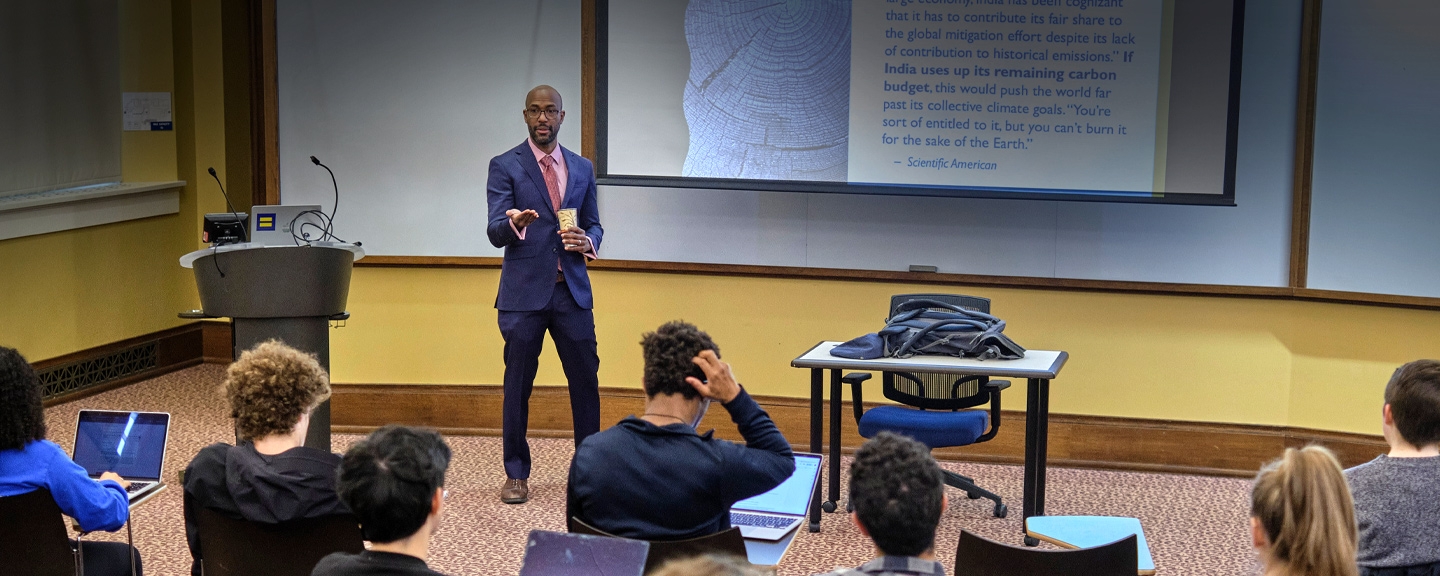Literature, Learning, Loving Vermont
Jay Parini, the D.E. Axinn Professor of English and Creative Writing, reflects in a wide-ranging conversation on reading, writing, and teaching at Middlebury.

As our knowledge of the world expands, a Middlebury education expands. With new investment, Middlebury will develop students’ fluency in the 21st-century literacies of data analysis, cultural difference, conflict transformation, and environmental change. We’ll continue to recruit and support an outstanding and diverse faculty, as well as industry experts—leaders in finance, media, and technology who bring workplace expertise to the classroom. We’ll incorporate the evolving work of our academic and research centers into the curriculum to create new learning opportunities. Building on a model that is innovative and relevant, we will empower students to deepen their understanding of the world and navigate its complexities.
Expand academic programs in new and interdisciplinary areas, including data analytics, environmental leadership, Black studies, and conflict transformation.
Support core academic areas including natural sciences, mathematics, humanities, and languages.
Ensure that all faculty have access to skill and knowledge development and state-of-the-art tools to enhance their teaching and research.
Provide foundational support for leading-edge research at College and Institute academic centers.
Jay Parini, the D.E. Axinn Professor of English and Creative Writing, reflects in a wide-ranging conversation on reading, writing, and teaching at Middlebury.
We can’t end all conflict. But can we transform how we deal with it? Aided by a $25 million grant, Middlebury’s program in conflict transformation aims to do just that.
Crucial work will be advanced by a $2 million gift to expand the Center on Terrorism, Extremism, and Counterterrorism (CTEC) at Middlebury’s Institute of International Studies at Monterey.